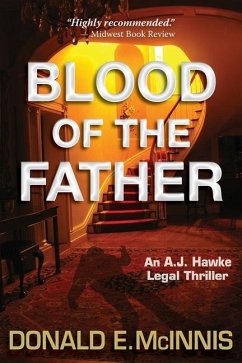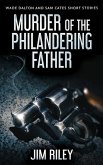"Highly recommended." -Midwest Book Review Few authors are in a position to as realistically portray the challenges of being a lawyer as lawyer/author Donald E. McInnis. That is why Blood of the Father is a legal thriller filled with rare, vibrant descriptions that will especially resonate with readers already familiar with the legal system. Its protagonist, A.J. Hawke, represents many of the dilemmas McInnis also faced as a young lawyer, which will feel familiar and eerily realistic as the story unfolds. The story adds to the A.J. Hawke, Attorney at Law legal thriller series, but also stands alone as an outstanding story that blends political, legal, and crime scenarios in an atmospheric and compelling series of twists and turns that challenge Hawke in unique ways. Readers who enjoy thrillers that examine legal proceedings such as defense-killing strategies and maneuvers will find the in-court and out-of-court descriptions engrossing and the unexpected developments satisfyingly unpredictable. . . . Highly recommended. >Blood of the Father is the third book in the A, J. Hawke legal-thriller series from Donald E. McInnis A.J. Hawke, Attorney at Law, no sooner reads about the death of Nevan Pansky, an influential member of the U.S. Senate, than a woman barges into his office, demanding that he represent her. When he questions her need for criminal defense attorney, she blurts out: "I killed my husband. I need you to arrange for my surrender to the police-and my confession." The woman is the dead man's wife, San Diego County Supervisor and mayoral candidate, Katherine Pansky. She claims she shot her husband after learning he had raped their teenage daughter. Hawke agrees to represent her, assuring her that under the circumstances he can probably get a reduced charge and prison sentence, if not an acquittal. But when the crime-scene evidence suggests she may not have murdered her husband, the case takes a mind-spinning twist. Hawke must not only prove she didn't commit the crime, her confession notwithstanding, he also must track down the actual killer. This in turn leads Hawke not only into a legal dilemma but a moral dilemma for which he has no solution. Or does he?
Bitte wählen Sie Ihr Anliegen aus.
Rechnungen
Retourenschein anfordern
Bestellstatus
Storno







